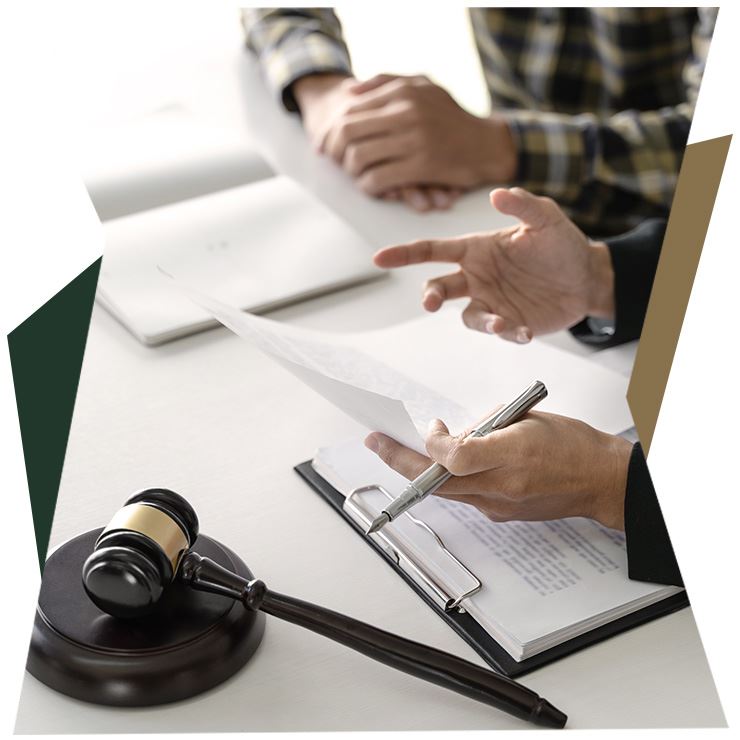
San Antonio DWI Attorney
Protecting Your Rights & Driving Privileges
It starts with spotting those flashing red and blue lights in your rearview mirror. Before you know it, your life could be upended after being charged with driving while intoxicated. DWI is a serious crime, and the penalties can be severe. On top of the fines and potential jail time, you could even lose your driver’s license.
If you have been charged with DWI, now is the time to retain aggressive representation from an experienced criminal defense attorney. Our San Antonio DWI lawyer, Attorney Derek S. Ritchie, is a fierce and results-driven advocate for his clients. Competitive by nature, Derek does everything in his power to achieve positive results. He fights hard for what his clients want and is unafraid of the courtroom.
Contact The Law Office of Derek S. Ritchie, PLLC at (210) 702-2203 to discuss your charges during a free and confidential consultation.
Types of DWI Cases We Defend
We provide robust legal representation for individuals facing various DWI charges. Our skill lies in leveraging our knowledge and resources to challenge accusations and pursue just resolutions for our clients. We understand the seriousness of our clients' legal matters and are dedicated to offering strategic defense strategies.
Here are some of the DWI cases we handle:
- First-time DWI
- Multiple DWIs (DWI with priors)
- Drug-related DWI
- Felony DWI
- Intoxication assault
- Intoxication manslaughter
- And more
Our firm offers sound legal guidance and effective defense strategies tailored to each client's unique circumstances.
The Impact of a DWI Conviction
In Texas, DWI can be charged as either a misdemeanor or a felony. The circumstances of the incident will dictate the charges you face.
Though most DWIs are misdemeanors, you could be facing felony charges if:
- You non-fatally injure someone
- Someone dies as the result of your drunken driving
- There is a child passenger in your vehicle at the time of the arrest
- It is your third or subsequent offense
No matter the charges against you, you could be penalized with jail time, fines, driver’s license suspension, mandatory drug or alcohol classes, and mandatory ignition interlock device installation.
Administrative License Revocation Hearings
In addition to a criminal trial, you’ll face an administrative license revocation (ALR) hearing if you are arrested for DWI. The Department of Public Safety holds ALR hearings to determine whether the charged driver will lose their driving privileges.
You only have two weeks to schedule an ALR hearing after the date of your arrest, so act quickly. Failing to schedule a hearing could result in automatic license suspension.
Our San Antonio DWI attorney can defend you in this hearing and present evidence as to why your license should not be suspended or revoked. We are dedicated to protecting our clients’ driving privileges.
Overview of Texas DWI Penalties
A conviction for DWI in Texas carries harsh criminal penalties, such as driver’s license suspension for months or years, fines worth thousands of dollars, and even a lengthy jail sentence.
The penalties for DWI in Texas include:
- First DWI – Class B misdemeanor, punishable by a jail term of up to 180 days, a maximum fine of $2,000, and driver’s license suspension for up to one year. However, if a person’s BAC is at least .15 percent—nearly double the legal limit—a first offense is a Class A misdemeanor, which carries a maximum jail sentence of one year, fines of up to $4,000, and driver’s license suspension for up to one year.
- Second DWI – Class A misdemeanor, punishable by a jail sentence of up to one year, a maximum fine of $4,000, and driver’s license suspension for up to two years.
- Third DWI – Third-degree felony, punishable by imprisonment for up to ten years, a maximum fine of $10,000, and driver’s license suspension for two years.
- Underage DUI – Texas has a zero-tolerance law for drivers under the age of 21, which means if an underage driver has any alcohol in his/her system, he/she will be charged with driving under the influence of alcohol (DUIA). If a minor is under 17 years old, then a first offense is a Class C misdemeanor, which carries driver’s license suspension for 60 days, a maximum fine of $500, and 40 hours of community service. If a driver is between 17 and 20 years old, then a first offense is a Class B misdemeanor.


Why Choose The Law Office of Derek S. Ritchie, PLLC?
-
Work Directly With Your Attorneys
Derek and his team will work directly with you through every step of your case. It’s important to us that your case receives highly personalized attention. You instilled your trust in us and we will work to meet and exceed your expectations.
-
We Fight to Win
We’re competitive by nature and have a versatile legal style. We always seek an amicable outcome among different parties. We’re also prepared and ready to take your case to trial.
-
Complimentary Consultations
We strive to create an environment where you feel safe and protected. We recommend starting with a complimentary consultation to review your case together. Evening and weekend consultations are available by appointment only.